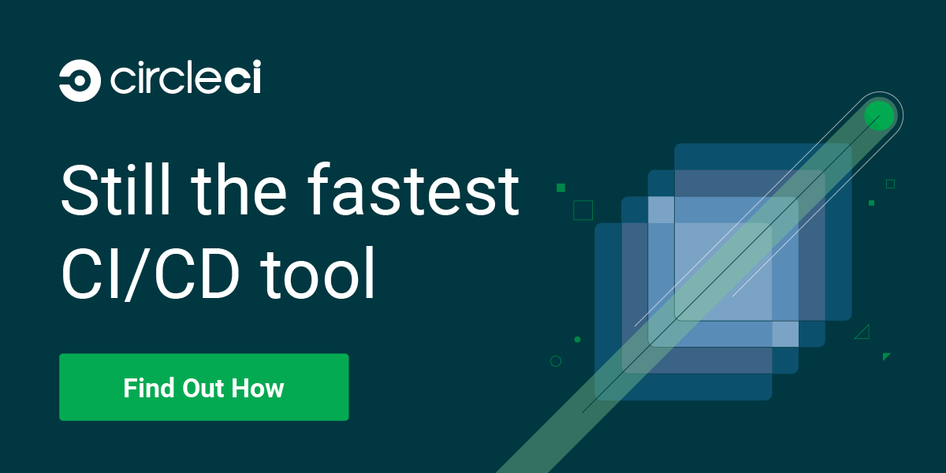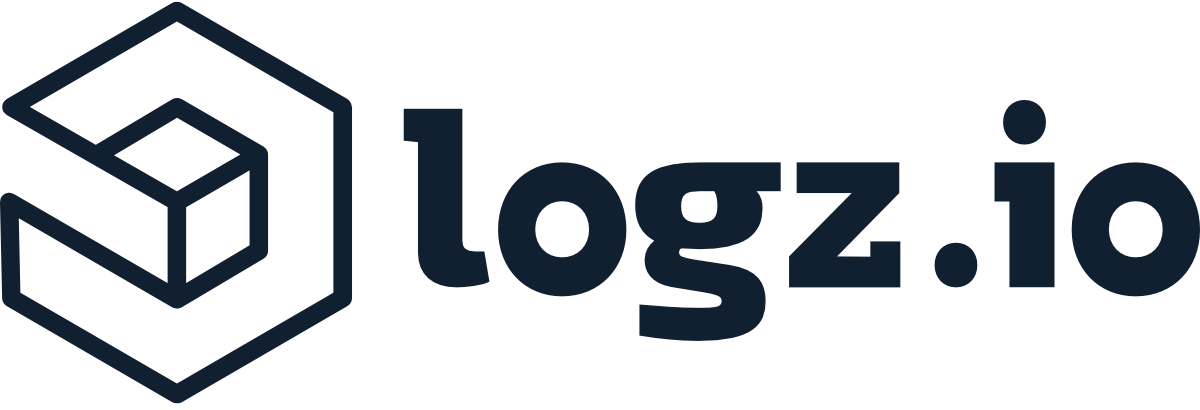VMblog: If you were giving a KubeCon attendee a quick overview of the company, what would you say? How would you describe the company?
Olaf Molenveld: CircleCI delivers best-in-class CI/CD for all use cases - from mobile to serverless, to self-hosted, and everything in between. Our mission is to manage change and complexity for software teams so they can focus on what really matters: innovating faster. As a core CI/CD platform, CircleCI has over a decade of real-world experience supporting software teams at large enterprises, small cloud-native startups, and everything in between through powerful pipeline automation. What makes CircleCI stand out among other vendors in the industry is that it's super easy and fast to get started, with robust support for a self-serve user base while having all the enterprise features necessary to grow alongside teams as requirements scale.
VMblog: How can attendees of the event find you? What do you have planned at your booth this year? What type of things will attendees be able to do at your booth?
Molenveld: KubeCon attendees can find us at booth M16, where we have lots of exciting things planned, including:
- Daily raffles for LEGO kits.
- Platform demos that include a preview of brand-new features we're launching at the show.
- Technical experts who are there to discuss all things CI/CD, Kubernetes, AI, and more. We love helping users solve complex problems, so come chat with us.
- Our famous socks and stickers (for a badge scan, of course).
Lastly, we are hosting a party on Thursday, March 21st at 7:00 pm. But it's not just any party, it's a release party on a boat! If you want to enjoy an evening with the CircleCI team, RSVP here: https://www2.circleci.com/releaseparty24.html
VMblog: Have you sponsored KubeCon + CloudNativeCon in the past? If so, what about this show keeps you coming back as a sponsor?
Molenveld: Yes, we sponsor both KubeCon EU and KubeCon North America every year. Here's why:
- Target Audience: KubeCon attracts a large number of developers, DevOps professionals, and other key stakeholders who are deeply involved in Kubernetes and cloud-native ecosystems. At CircleCI, we consider ourselves Kubernetes experts, with GigaOm naming CircleCI a leading solution for CI/CD Kubernetes use cases. The caliber of this audience is unmatched in that they are often on the bleeding edge of solving complex problems like integrating AI into day-to-day software development workflows.
- Industry Relevance: The conference is a premier event in the cloud-native space, providing insights into the latest trends, technologies, and best practices. We're committed to continuous improvement both in managing complex systems and in how we support our users. KubeCon helps CircleCI ensure that we stay at the forefront of the industry while showcasing our commitment to supporting the cloud-native community.
- Networking Opportunities: While remote work has perks, we miss meeting folks outside our internal organization. It's fun to talk shop, laugh, and getting to know other people in the space outside of the office/Zoom. As the industry grapples with increasing complexity and novel technologies like AI, it often requires minds to come together in one space to propel us forward. This is, perhaps, the most crucial outcome of attendance, and it keeps us coming back year after year.
VMblog: What do you attribute to the success and growth of this industry?
Molenveld: The industry's (software solutions) success can be attributed to many factors that have collectively propelled our growth and innovation. Technological advancements such as the rise of cloud computing, artificial intelligence, and mobile have continuously opened up new avenues for software development. Simultaneously, the widespread digital transformation across industries has led to an increased reliance on software solutions to streamline operations, enhance customer experiences, and maintain competitiveness.
The industry has benefited from global connectivity, expanding the market reach and facilitating collaboration across borders (just like all of us gathering in Paris for KubeCon!). The adoption of agile methodologies and DevOps best practices have revolutionized the software development process, enabling teams to write higher-quality code, test continuously, and deliver innovation faster (CI/CD platforms being central to this).
Furthermore, the open-source movement, including Docker, Kubernetes, OpenTelemetry, and so on, has been instrumental in fostering collaboration and innovation, reducing development costs, and creating a wealth of tools, frameworks, and platforms that underpin modern software development. As businesses increasingly seek to automate processes, the demand for software solutions that can facilitate automation has surged, further fueling industry growth.
VMblog: What are you personally most interested in seeing or learning at KubeCon + CloudNativeCon?
Molenveld: I'm interested in learning more about what challenges the community is observing and tackling in the DevOps, progressive delivery, and ML/AI spaces. I am especially interested in the possible synergies between these three areas. Something we have been grappling with at CircleCI is how to integrate and orchestrate LLM tools in the most effective and user friendly way into a DevOps pipeline.
VMblog: What kind of message will an attendee hear from you this year? What will they take back to help sell their management team and decision makers?
Molenveld: Frankly, CI/CD is no longer a nice to have but a must-have. Sure, 10 years ago, it seemed far-fetched, but today, CTOs at large enterprises aren't asking if they need CI/CD but rather who they should do it with. At CircleCI, we have these conversations daily because it's what sets elite engineering teams apart from the rest. While the industry has historically focused on tool consolidation, CI/CD shouldn't be about ticking the box on a laundry list of platform features. CI/CD, at its core, deserves a very special place at the top of your budget because it's easily defendable in terms of ROI. We help teams build and high-quality software faster and more reliably. And now with CircleCI releases, developers have end-to-end visibility of their deployments in production and access to rollback commands (e.g., restore version, scale component, and restart component) for seamless release management. CircleCI releases makes deploying code less risky, user-focused, and more accessible for developers to ship faster with confidence.
Additionally, if your boss/team is under pressure to deliver new AI-enhanced products, CI/CD tools are your golden ticket to doing so (at least without breaking everything, and with keeping your underlying model(s) working as expected).
VMblog: Can you double click on your company's technologies? And talk about the types of problems you solve for a KubeCon + CloudNativeCon attendee.
Molenveld: Our mission is to manage change and complexity so software teams can focus on doing what they love - delivering innovation. CircleCI is a continuous integration and continuous deployment (CI/CD) platform that automates the software development process, enabling teams to build, test, deploy, and monitor software applications quickly and efficiently. We integrate with popular version control systems (VCS) like GitHub, Bitbucket, and GitLab, allowing developers to automatically run, test, and deploy code every time they make changes to their repository. More recently we've been doubling down on ML/AI-focused features, where validating, (re)training, and deploying ML/AI models is a core use case.
A few key features include:
- Configurable workflows: CircleCI allows teams to define complex workflows, enabling them to automate not only testing and deployment but also other stages of the development process, such as linting, security checks, and artifact building.
- Parallelism and caching: We support parallel execution of tests and jobs, which can significantly reduce build times. CircleCI also offers caching mechanisms to reuse data between builds, further speeding up the process.
- Docker support: CircleCI provides first-class support for Docker, allowing teams to build and deploy containerized applications seamlessly.
- SSH debugging: Teams can securely access a running build container for debugging purposes, enabling them to inspect the environment and run commands to diagnose issues. Additionally, they can use SSH keys in CircleCI to automate the deployment of code and access private Git repositories as part of their continuous integration and delivery pipeline.
- Customizable environments: Teams can configure the build environment to match their specific needs, ensuring that tests and deployments are run in a consistent and controlled setting.
- Rich insights and analytics: CircleCI offers insights and analytics to help teams track their build performance, identify bottlenecks, and optimize their CI/CD pipelines.
How we're different than the rest:
- Ease of use: CircleCI is known for its simplicity and ease of setup. Its configuration is done using a single YAML file, making it straightforward for teams to get started and maintain their CI/CD pipelines. And if you prefer, you can also use our config SDK to programmatically create and manage your config files using Javascript or Typescript.
- Flexibility: With our configurable workflows and support for various programming languages and environments, CircleCI offers a high degree of flexibility, catering to a wide range of development needs.
- Scalability: CircleCI is designed to scale with the needs of the team, supporting everything from small projects to large-scale enterprise applications.
- Strong ecosystem integration: CircleCI seamlessly integrates with many tools and services, including Kubernetes, containers, Argo, and others, providing developers with a smooth and cohesive experience.
- Community and support: CircleCI has a large and active community, along with comprehensive documentation and support, making it easier for teams to find help and resources when needed.
VMblog: Where does your company fit within the container, cloud, Kubernetes ecosystem?
Molenveld: Our platform and product leverage cloud-native technologies like containers, Kubernetes, and Argo. CircleCI integrates seamlessly with cloud-native technologies to test, build, deploy, and validate code, artifacts, and ML/AI models. From a landscape perspective, we fit nicely into the CI/CD, DevOps, and ML/AI tooling areas.
VMblog: KubeCon + CloudNativeCon is typically a great venue for a company to launch a new product or an update to an existing product. Will your company be announcing anything new? If so, can you give us a sneak preview?
Molenveld: We are launching CircleCI Releases, which enables developers to automate the release orchestration process directly from the CircleCI UI. With current support for Kubernetes and Amazon SageMaker, developers will now have end-to-end visibility of their deployments in production and access to rollback commands (e.g., restore version, scale component, and restart component) for seamless release management. CircleCI releases make deploying code less risky, user-focused, and more accessible for developers to ship faster with confidence.
CircleCI Releases enables software teams to automate their progressive delivery process with out-of-the box support for Argo Rollouts, giving developers and teams complete control over their releases. Future support for blue-green deployments is slated for later in 2024. By integrating automated CI/CD pipelines directly into the release orchestration process, software teams dramatically reduce mean-time-to-recovery (MTTR), giving them the confidence to resolve issues should releases go awry with little to no impact on their customers.
Our approach to CircleCI Releases provides a developer-centric workflow that enables you to ship faster and monitor new features in production coupled with the safety net of quickly rolling back releases if something goes wrong.
Other noteworthy features are our VSCode extension that allows you to test-run Config files directly from the IDE, with valuable optimizations offered for your Config files, and our generic inbound webhooks, that allow you to trigger pipeline runs from any external source of change, i.e. when your ML model in Hugging Face changes.
VMblog: With regard to containers and Kubernetes, is there anything holding it back from a wider distribution? If so, what is it? And how do we overcome it?
Molenveld: In my opinion, over the last few years, containers and Kubernetes have become "boring." This is a good thing, as they are now pressure tested and proven technologies for organizations both small and enterprise-scale. I believe the next stages to focus on, and improve containers and Kubernetes adoption, are in the realms of security, compliance, and observability.
VMblog: Are companies going all in for the cloud? Or do you see a return back to on-premises? Are there roadblocks in place keeping companies from going all cloud?
Molenveld: I believe that the right answer, as always, is "it depends." It's rarely a one-size-fits-all scenario. For some companies, it makes sense to go all-in on the cloud; for others, it could still be all-in on-premises. Typically, though, I think we will see a "cloud-first, unless" strategy, where at some point, on-premises infrastructure will be added for certain areas where and when it makes sense. And this is exactly why having built-in flexibility in your CI/CD tools is crucial.
VMblog: The keynote stage will be covering a number of big topics, but what big changes or trends does your company see taking shape this year?
Molenveld: Machine Learning and AI will be the big things in the coming time, especially in terms of how to apply these awesome developments in a secure and responsible way and to create real-world value.
VMblog: Do you have any advice for attendees of the show?
Molenveld: Enjoy the ride! And, of course, come and say hello to the CircleCI team at our booth M16!










